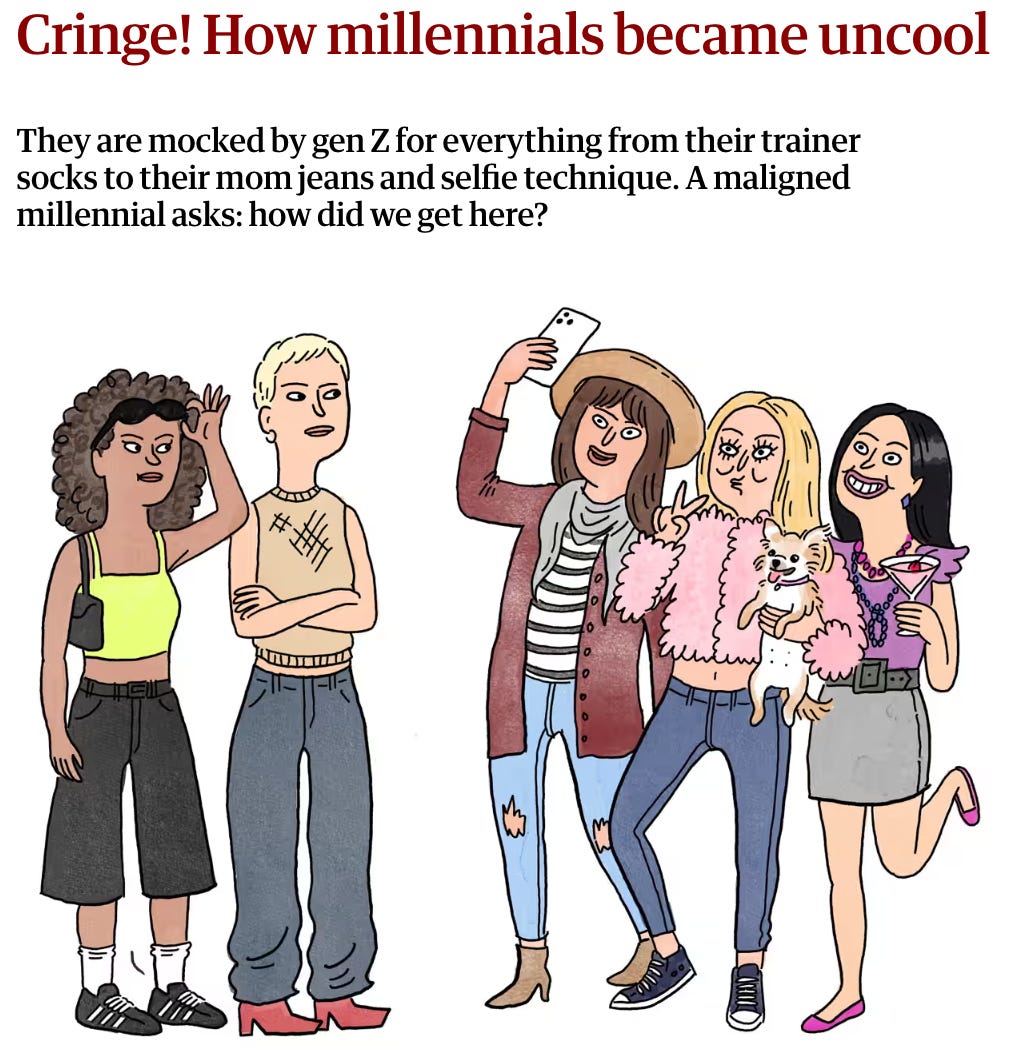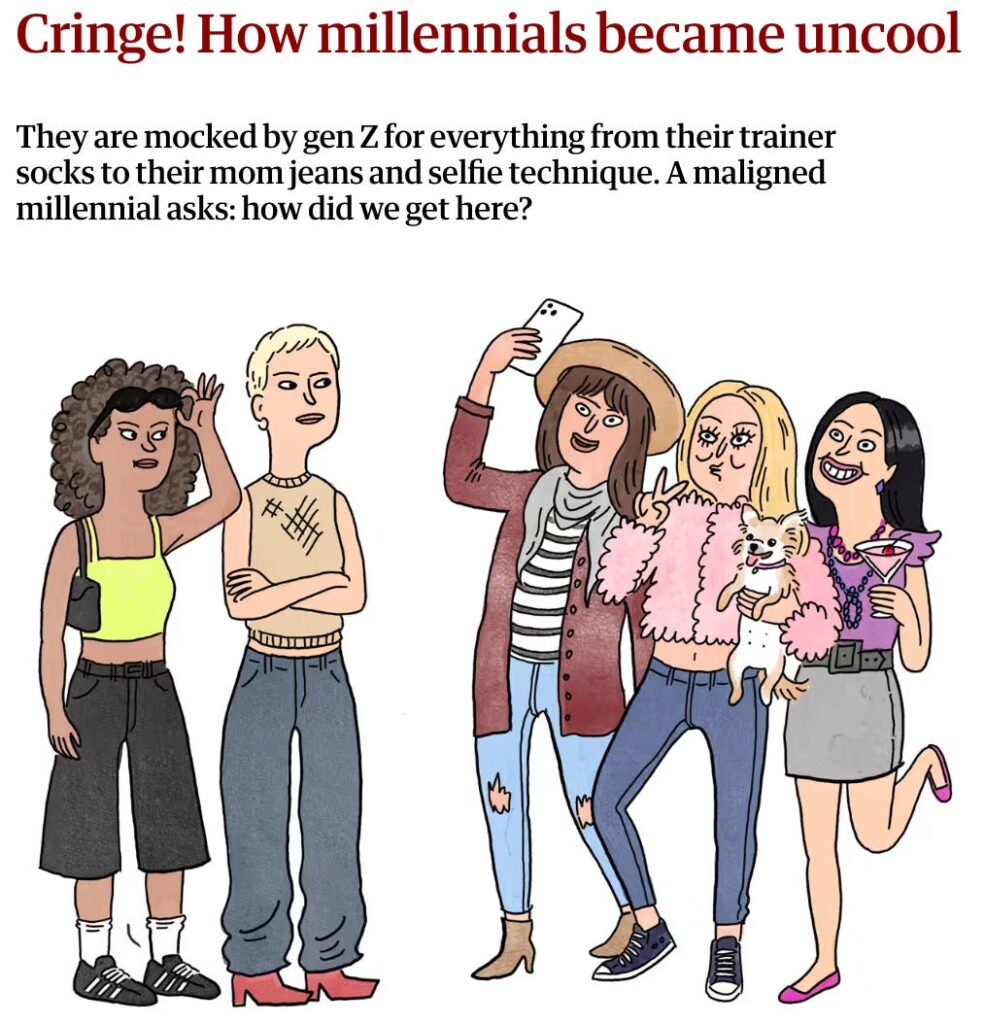
Does the Rise of Millennial Cringe Mean We’re Laughing at the Past or Losing Perspective?

Check out the featured post and read more here: https://www.christianity.com/wiki/current-events/does-the-rise-of-millennial-cringe-mean-were-laughing-at-the-past-or-losing-perspective.html
A growing cultural trend known as “Millennial Cringe” has taken hold online, where Gen Z critiques millennial habits—from skinny jeans and the crying-laughing emoji to overly sincere Instagram captions. What was once popular is now satirized as outdated, try-hard, or embarrassingly earnest. While some millennials push back or laugh along, the moment highlights deeper discomfort with aging, identity, and shifting digital norms.
Sadly, as a 1996 baby, I’m part Gen Z and part Millennial, stuck in between this debacle. Because the internet and social media culture move fast, what was once cool has already become “cringe” and last season. Don’t believe me? Ask your parents or take a look at what they wore in the 80s and 90s—hit styles like crop tops and baggy jeans are already making a comeback.
According to the trend, Millennial Cringe is where Gen Z mocks millennial styles such as skinny jeans, side parts, crying-laughing emojis, or sincere Instagram captions, to name a few. While some laugh, others highlight the tension between two very different generations: Is this harmless fun, or does it reveal something deeper about our fear of aging and authenticity? If being mocked for sincerity is part of our moment, how do we remain joyfully authentic—and teach the next generation that truth, not trend, is what endures?
The Meme-ification of Millennials
Unlike Millennials, Gen Z has been raised almost entirely on TikTok, Instagram reels, and online commentary. According to Phu Concepts, “Memes have emerged as a cultural phenomenon that resonates particularly well with the younger generations – Gen Z (Zoomers) and Gen Y (Millennials)”. When Gen Z finds millennial habits outdated, however, such as the fast pace of digital aesthetics or the shift from sincerity, these concepts become ironic and mocked.
While many millennials laugh about the fading trend and move on, others push back about the self-deprecation and genuine hurt. Beyond humor, this reveals anxiety about identity, relevance, and cultural obsolescence between generations. Again, I think we, no matter what generation we find ourselves a part of, must ask some pivotal questions:
- How do we stay authentic in a world of ironic distance?
- How do we stand for sincerity when we’re made fun of for it?
- How do we remain vulnerable in a digital age of irony and satire?